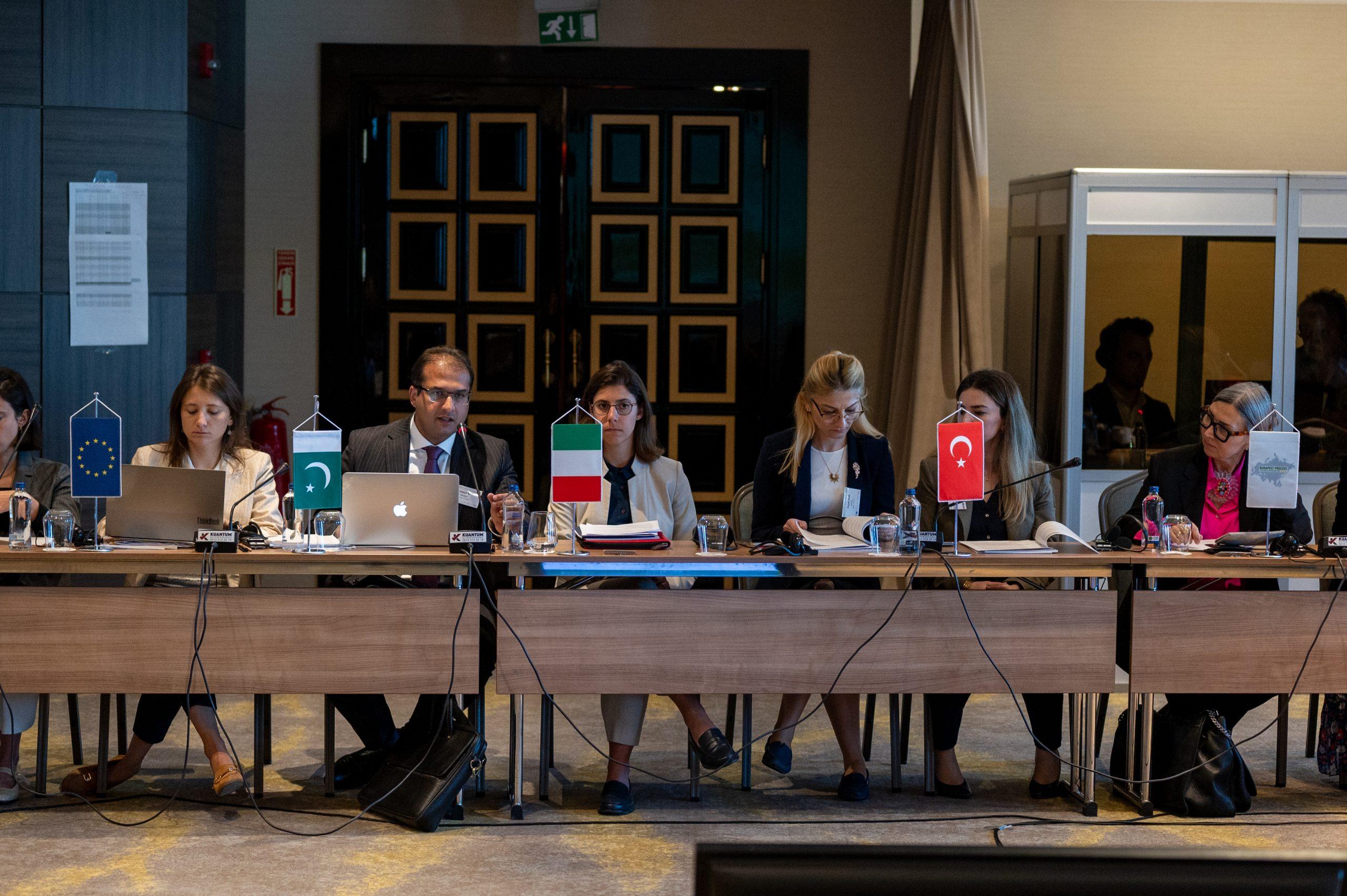On 7-8 May, 69 officials and experts representing 28 states and seven organisations gathered in Istanbul, Türkiye for the Budapest Process Thematic Working Group Meeting on Legal Pathways for Migration: Understanding Challenges, Needs and Opportunities for Improving Labour Migration. The participants shared insights on labour mobility priorities, evidence-based policies and action, best practices and lessons learned from existing partnerships and explored opportunities for cooperation on skills development and partnerships. This was the first meeting of the Thematic Working Group for Legal Pathways for Migration, established in December 2022, convened by the Thematic Working Group Co-Chairs Italy and Pakistan, supported by the International Centre for Migration Policy Development (ICMPD), acting as the Budapest Process Secretariat.
The meeting contributed with action-oriented recommendations to countries in relation to legal pathways for migration, and it offered a platform to exchange on initiatives and actions going forward. The participants shared their views on various opportunities for enhancing operational cooperation in labour migration, best practices in practical skills and labour mobility partnerships, as well as suggestions for concrete actions and pilot initiatives to be taken forward in line with the Budapest Process commitment to facilitating dialogue that leads to action.
Over the course of several sessions and multiple topical discussions, the meeting formulated several key conclusions to assist participating countries and organisations in developing evidence-based action:
- Notably, the meeting concluded that legal pathways are crucial for addressing labour shortages and supporting development, emphasising the importance of standardisation and mutual skills recognition in an open and productive discussion.
- Furthermore, several presentations highlighted that there is an increasing demand for migrant workers, especially in Europe, in various sectors such as healthcare, construction, and ICT.
- Additionally, the exchanges noted that the goal of matching skills with the labour market needs can be successfully achieved through joint skills development initiatives, ranging from dual certification initiatives, curriculum alignment and “last-mile” training in Country of Destination.
The meeting also resulted in concrete recommendations for improving labour migration cooperation. Most importantly, it was recommended that the Working Group explores possibilities for the launching of concrete pilot labour migration cooperation initiatives and skills mobility partnerships that address the needs of both origin and destination countries and ensure mutual labour migration benefits. Additionally, the Working Group will explore possibilities to replicate existing successful models across the BP countries to support development of robust data-sharing mechanisms and job matching systems, promoting data sharing and evidence-based policies, fostering multi-stakeholder involvement, and ensuring sustainable and ethical migration pathways through implementation of good quality frameworks for migration programmes. Finally, the meeting reiterated the commitment of BP partner countries to ongoing dialogue under the framework of the BP Thematic Working Group on Legal Pathways for Migration to ensure continuous exchange on the best practices and lessons learned.
The conclusions and recommendations of the Thematic Working Group Meeting will inform the discussions of the 7th Budapest Process Ministerial Conference which will take place in Budapest later in the year, and the Working Group will continue working towards supporting and promoting concrete cooperation initiatives and helping translate dialogue into action.

